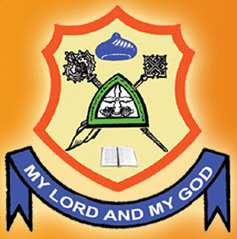It is this Orthodox understanding of the “laity” that discloses the real meaning and function of clergy. In the Orthodox Church clergy is not above laity or opposed to it. First of all, strangely at it may seem, the basic meaning of term clergy is very close to that of laity. Clergy comes from “clerus” which means the “part of God”. “Clergy” means that part of mankind that belongs to God, has accepted His call, has dedicated itself to God. In this initial meaning the whole Church is described as “clergy”— part or inheritance of God: “O God, save Thy people and bless Thine inheritance”: (kleronomia or clergy — in Greek). The Church because She is the People of God (laity) is His “part”, His “inheritance”.
But gradually the term “clergy” was limited to those who fulfilled a special ministry within the People of God, who were especially set apart to serve on behalf of the whole community. For, from the very beginning, the People of God was not amorphous but was given by Christ Himself a structure, an order, a hierarchical shape:
“And God has set some in the Church, first apostles, secondary prophets, thirdly teachers… Are all apostles? Are all prophets? Are all teachers?… Now you are the body of Christ, and members in particular…” (1 Cor. 12:28-29)
Historically the Church was built on the Apostles, whom Christ Himself has elected and appointed. The Apostles again elected and appointed their own helpers and successors, so that throughout the whole uninterrupted development of the Church, there has always been the continuity of this Divine appointment and election.
The “clergy” therefore is needed to make the Church what she has to be: the special People or Part of God. Their special function is to perpetuate within the Church that which does not depend on men: the Grace of God, the Teaching of God, the commandments of God, the saving and healing power of God. We stress this “of God” for the whole meaning of “clergy” lies precisely in their total identification with the objective teaching of the Church. It is not their teaching or their power: they have none, but that which has been kept and perpetuated in the Church from the Apostles down to our own time and which constitutes the essence of the Church. The Priest has the power to teach, but only inasmuch as he teaches the Tradition of the Church, and is completely obedient to it. He has the power to celebrate, but again, only inasmuch as he fulfills the eternal Priesthood of Christ Himself. He is bound — totally and exclusively — by the Truth which he represents and, thus, can never speak or command in his own name.
Our people in their criticism of the clergy fear the excessive “power” of clergy, yet too often they do not realize that the priest represents nothing else than the “Power” of the Church, of which they are members and not any specific “clerical” power. For it is clear to everybody that the Church existed before we were born and has always existed as a body of doctrine, order, liturgy, etc. It does not belong to anyone of us to change the Church or to make it follow our own taste, for the simple reason that we belong to the Church, but the Church does not belong to us. We have been mercifully accepted by God into His household, made worthy of Hid Body and Blood, of His Revelation, of Communion with Him. And the clergy represent this continuity, this identity of the Church in doctrine, life and grace throughout space and time. They teach the same eternal teaching, they bring to us the same eternal Christ, they announce the same and eternal Saving Act of God.
Without this hierarchical structure the Church would become a purely human organization reflecting the various ideas, tastes, choices of men. She would cease to be the Divine Institution, God’s gift to us. But then “laity” could not be “laity”— the People of God — any more, there would be no Amen to be said, for where there is no gift there can be no acceptance… The mystery of Holy Orders in the Church is that which makes the whole Church truly and fully the Laos, the Laity, the very People of God.
Note: Rev.Fr.Alexander Schmemann (13 September 1921 in Tallinn – 13 December 1983 in New York City) was an influential Orthodox Christianpriest, teacher, and writer. From 1946 to 1951 he taught in Paris, and afterwards in New York. In his teachings and writings he sought to establish the close links between Christian theology and Christian liturgy.




